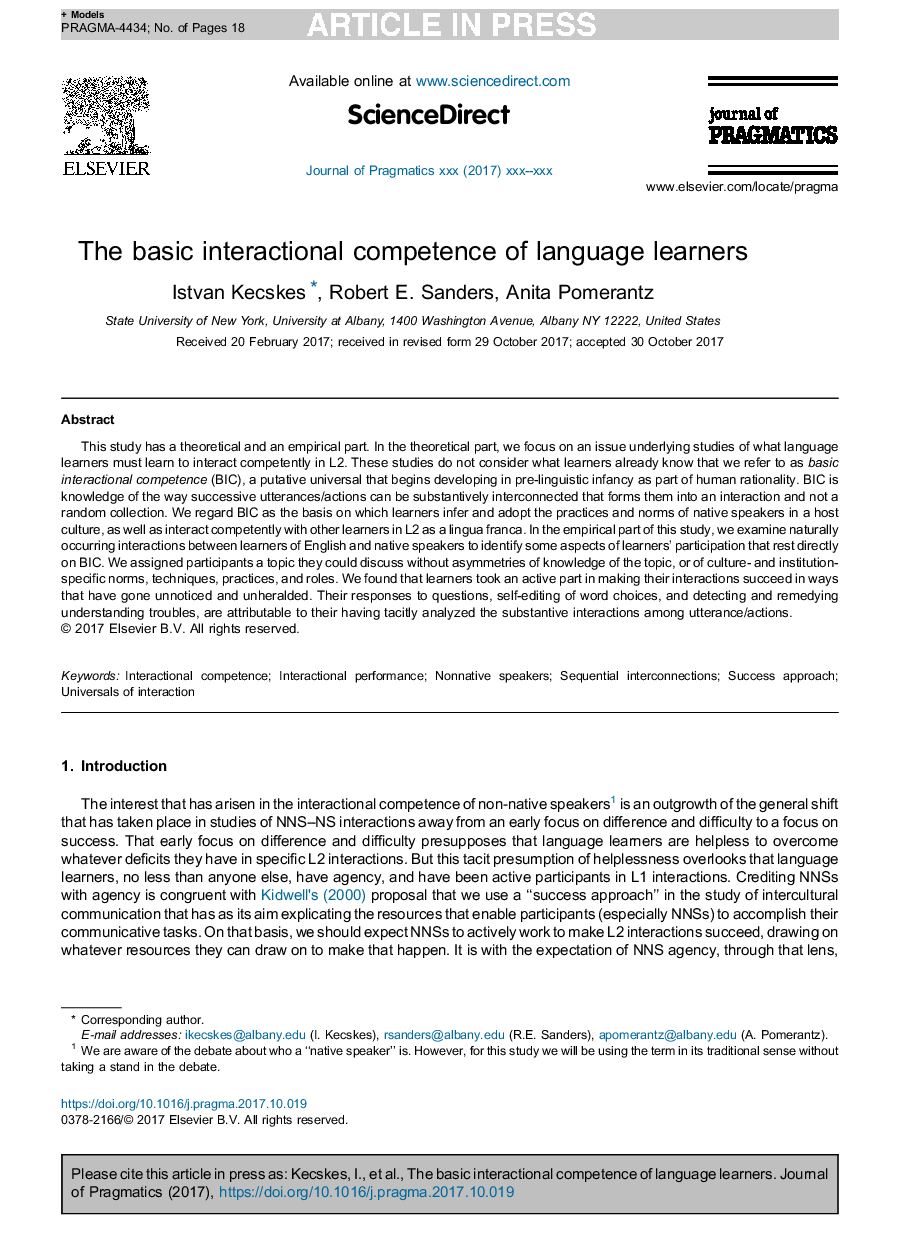| Article ID | Journal | Published Year | Pages | File Type |
|---|---|---|---|---|
| 7297610 | Journal of Pragmatics | 2018 | 18 Pages |
Abstract
This study has a theoretical and an empirical part. In the theoretical part, we focus on an issue underlying studies of what language learners must learn to interact competently in L2. These studies do not consider what learners already know that we refer to as basic interactional competence (BIC), a putative universal that begins developing in pre-linguistic infancy as part of human rationality. BIC is knowledge of the way successive utterances/actions can be substantively interconnected that forms them into an interaction and not a random collection. We regard BIC as the basis on which learners infer and adopt the practices and norms of native speakers in a host culture, as well as interact competently with other learners in L2 as a lingua franca. In the empirical part of this study, we examine naturally occurring interactions between learners of English and native speakers to identify some aspects of learners' participation that rest directly on BIC. We assigned participants a topic they could discuss without asymmetries of knowledge of the topic, or of culture- and institution-specific norms, techniques, practices, and roles. We found that learners took an active part in making their interactions succeed in ways that have gone unnoticed and unheralded. Their responses to questions, self-editing of word choices, and detecting and remedying understanding troubles, are attributable to their having tacitly analyzed the substantive interactions among utterance/actions.
Keywords
Related Topics
Social Sciences and Humanities
Arts and Humanities
Language and Linguistics
Authors
Istvan Kecskes, Robert E. Sanders, Anita Pomerantz,
